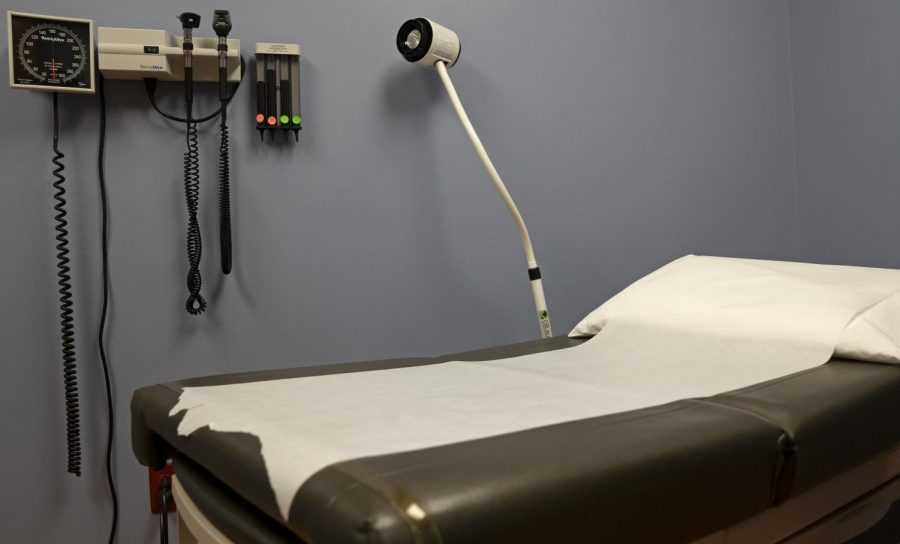What is the coronavirus? What you need to know to be prepared at WKU
March 2, 2020
While no instances of the Coronavirus had been reported in Kentucky as of March 2 when the email was released, acting Provost Cheryl Stevens sent an email about how WKU can prepare.
“[I]t is prudent that as a community, we educate ourselves, we remain aware of the situation as it develops and we prepare to respond should the need arise,” Stevens wrote.
According to the provost’s email, WKU’s emergency management team is working with groups across campus to form a plan in the case of an outbreak locally.
“There are no current plans to cancel classes due to the low risk in our region,” Stevens said. “However, this is a good time to think about preparing for any situation that could disrupt class schedules, how we can complete courses outside of face-to-face instruction and how we can support our community in an emergency situation.”
WKU Housing and Residence Life shared the provost’s email with students and added the following statement to its email:
“There have been no cases of the Coronavirus at WKU,” HRL stated in the email. “We are following the situation and are prepared to take the steps necessary to keep our campus safe.”
Live updates from the New York Times reported the coronavirus has infected nearly 90,000 people worldwide as of Monday morning. While the disease seems to be slowing down where it originated in China, the spread of the coronavirus has picked up momentum, with cases in every continent but Antartica.
Concern about the virus is everywhere, as more confirmed cases are reported every day worldwide. But what is the coronavirus and how can you prepare for it? Here’s what you need to know about the coronavirus.
What is coronavirus?
The World Health Organization defines coronaviruses as “a large family of viruses that cause illness ranging from the common cold to more severe diseases.” According to the Centers for Disease Control and Prevention, a novel coronavirus, such as the current strain COVID-19, is a coronavirus that had previously been unidentified. The COVID-19 novel coronavirus is different from other strains, according to the CDC.
What are the symptoms of the new coronavirus?
The CDC stated symptoms of COVID-19 can occur two to 14 days after exposure to the virus and include fever, coughing and shortness of breath. The World Health Organization adds to the list of symptoms, citing that patients can also experience aches and pains, nasal congestion, runny nose, sore throat or diarrhea, which begin gradually and progress as mild symptoms.
How has the coronavirus affected WKU? Will it affect my study abroad?
Three students in WKU’s Chinese Flagship program returned to the U.S on Feb. 4 due to the outbreak, and four students abroad in Italy are expected to return soon.
Read more: WKU students in Italy to return early due to Coronavirus related travel restrictions
Background: WKU halts travel to China due to Coronavirus
What kind of severe symptoms can arise in cases of the new coronavirus?
The World Health Organization reports that 80% of people who contract COVID-19 recover with no severe symptoms or complications. According to its website, 1 in 6 people can develop difficulty breathing, with those at risk for more severe cases of the illness being predominantly elderly or those with pre-existing conditions like heart problems or diabetes.
How is the coronavirus treated?
According to the World Health Organization, there is currently no specific treatment or medication to prevent or treat COVID-19. The CDC reports that current patients receive supportive care to help relieve their symptoms and the World Health Organization’s reports concur, with an additional note that vaccines and specific drug treatments are currently being investigated.
Where did the coronavirus originate?
After cases appeared in Wuhan, Hubei Province, China in December 2019, WHO declared the coronavirus outbreak a public emergency on Jan. 30. Research reported by the CDC suggests that the current coronavirus began with exposure to a single animal reservoir before spreading through person-to-person contact.
How does the Coronavirus spread?
The CDC reports that the most common ways the new coronavirus spreads are person-to-person contact and contact with infected surfaces. Defining person-to-person contact as “between people who are in close contact with one another (within about 6 feet)” and “through respiratory droplets produced when an infected person coughs or sneezes,” the CDC reports that people are most contagious while expressing symptoms, however, spread might also occur during incubation.
How has the Coronavirus progressed?
The following map from the CDC shows areas with confirmed cases of the coronavirus as of March 3.
According to a timeline by TIME Magazine, the new coronavirus was discovered on Jan. 7 after the first patients to be diagnosed were infected at a seafood market in China’s Wuhan, Hubei Province. Two days later, the first fatality was reported in Wuhan. From there, the disease spread to Thailand and Japan from Jan. 13-15. Since then, according to Think Global Health, 53 additional countries have seen confirmed cases of COVID-19.
How many Coronavirus cases are there in the U.S.?
As of March 3, there are 87 confirmed cases in the United States, according to an article in the Washington Post. Below the CDC’s map of confirmed U.S. cases:
How many deaths have there been in the U.S. related to the coronavirus?
There have been two confirmed deaths related to the coronavirus in the United States, both in Washington State.
How many people have died from Coronavirus?
According to WHO, COVID-19 carries a 2% death rate among the people infected. As of Monday morning, sources like the New York Times and Washington Post report a global total of deaths succeeding 3,000. However, severe cases of the coronavirus, according to data reported by WHO, are most common in elderly patients and patients with pre-existing health concerns.
Where is the closest confirmed case of the Coronavirus?
The closest confirmed case of the virus is in Tennessee, according to the state’s Department of Health.
How do I prepare for the coronavirus?
The best way to prepare for the coronavirus is to prevent yourself from becoming infected. WHO suggests the following on their website:
-
Wash your hands consistently and thoroughly
-
Maintain a healthy distance between yourself and anyone exhibiting symptoms. The WHO suggests this distance be at least three feet.
-
Avoid touching your eyes, nose and mouth.
-
Stay informed on the latest updates surrounding COVID-19.
-
To avoid the spread of disease, stay home if you’re feeling unwell.
Will wearing a mask help prevent me from getting the coronavirus?
According to WHO, the use of masks is most effective by those exhibiting symptoms of COVID-19 and health care professionals caring for those patients. According to Johns Hopkins Medicine, the benefits of using one of the ill-fitting masks used for public distribution are unclear.
“Experts say they may provide some protection from large drops, sprays or splashes, but because they don’t fit tightly, they may allow tiny infected droplets to get into the nose, mouth or eyes,” according to the Johns Hopkins website.
How is the Coronavirus affecting travel and the economy?
Travel for both business and leisure have been affected, according to a CNN Business article. The decrease has left a deep impact on the global economy, according to the article, as the travel industry is one of the largest industries in the world
Is it safe to receive mail from a country with a large number of coronavirus cases?
Both the CDC and WHO, the answer is yes. The CDC states on their website that there is currently no evidence to support the contraction of COVID-19 through contact with imported goods.
“In general, because of poor survivability of these coronaviruses on surfaces, there is likely very low risk of spread from products or packaging that are shipped over a period of days or weeks at ambient temperatures,” the CDC’s website explains.
News reporter Abbey Nutter can be reached at abbigail.nutter168@topper. wku.edu. Follow her on Twitter at @abbeynutter.











